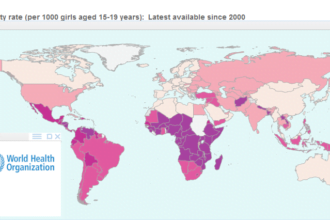I’ll try not to turn this into yet another Steve Jobs centered blog post, but I am interested in his self-professed ambition to ‘put a ding in the universe’, in particular the legacy he left the world of health care, perhaps in ways that he hadn’t planned.
I’ll try not to turn this into yet another Steve Jobs centered blog post, but I am interested in his self-professed ambition to ‘put a ding in the universe’, in particular the legacy he left the world of health care, perhaps in ways that he hadn’t planned.
Yesterday, I saw this headline on the front page of the online Times – “The Jobs Flaw: His death is sad but he didn’t half talk some rubbish” – an article proclaiming Steve Jobs was basically an idiot for suggesting we should dare to dream. It was a lazy hypercritical article, not worth paying too much attention to; it translated for me that it’s a bad thing to dream, to imagine, to formulate visions of a better future, better products, better services. You can read the article here if you like, http://www.thetimes.co.uk/tto/life/article3187575.ece but the Murdoch maverick will want you to pay.
Those of us in health care social media circles often ask ‘Who is the Steve Jobs of health care?” or “Where is the Richard Branson of health care?” or some such. We’re looking out for the major game-changers, the mavericks capable of putting a ding in the health care universe of the future? No doubt there are contenders out there and some of them may be found at TedMed in San Diego later this month.
At last year’s event it was Thomas Goetz who stood out for me with his talk about the need to redesign medical data. He asked why our health records are so hard to access and impossible to read, yet full of information that could us healthier if we just knew how to use it. He used his executive editorship of Wired magazine to publish some great illustrations showing just how well health information would be properly designed and displayed for patients.
I’m passionate about the language of health care. The problem is that for centuries health care has not been designed with people in mind and the language, the signage and data produced for health care, have been put together by medical communities for medical communities – rendering them meaningless and disempowering to the average patient.
Take the way medical data is laid out. It has one set of meanings to medical communities, in a medicalised and professionalized context, but if presented to a patient it would have completely different meaning (if indeed it has any meaning at all). Patients will always engage with information about their health in a personalized context, and of course it will often involve emotion, so why don’t hospitals, drug companies and public services invest in proper design.
I believe that if we want to understand how we can design better health systems and services in the future we can learn a lot from Steve Jobs and the history of computing over the past thirty years or so.
We can start by imagining. Think back to the 1970’s. What did we think computers were for? Back then, did we believe that a computer the size of a cigarette packet could not only carry a whole music collection but manage our health information, be a phone, be a map…and…and…and….? To most of us, computers were nothing to do with us, they dealt with data and numbers and that was it, and they were something somebody else did.
It’s hard to imagine a time when computers weren’t intuitive and easy to use, but in the 1980’s MS-DOS was the prevalent computer interface language that must surely have been system software designed by geeks for geeks.
The language of health care today and the medical information it produces is like MS-DOS – inaccessible and completely unfriendly. And if Apple had never come invented the mouse and the graphical user interface we might still be using languages like MS-DOS. It needed somebody with a bold vision to imagine something completely different and that person was Steve Jobs.
So just who’s gonna’ do that for design in health care?








